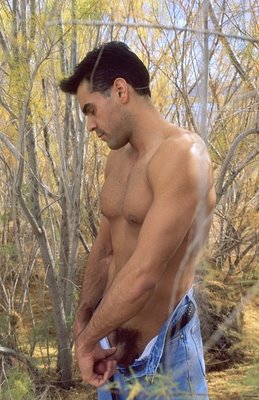 TENNESSE - While some Metro Council members believe surveillance cameras are needed to deter unlawful sexual activity in Metro parks, a funding plan they have offered may be out of bounds.
TENNESSE - While some Metro Council members believe surveillance cameras are needed to deter unlawful sexual activity in Metro parks, a funding plan they have offered may be out of bounds.Metro Council members from Madison, Antioch-Priest Lake and Donelson have proposed using $20,000 from a special pot of city money to buy the cameras and equipment.
The funds are available, said Gene Nolan, associate director of Metro finance, but the cameras might not fit the spending criteria for that money, which is earmarked for infrastructure projects such as road paving, sidewalk construction, median improvements, neighborhood signs and playgrounds.
"The camera issue is a gray area," Nolan said, adding that the Legal and Finance departments would make a decision this week on whether cameras qualify as parks infrastructure.
In the past, city officials have found that other proposed projects — such as buying computers — don't qualify. That's because they wear out in a few years and are not really infrastructure improvements, Nolan said.
Still, council members Vivian Wilhoite of Antioch-Priest Lake, Michael Craddock of Madison and J.B. Loring of Donelson each pledged about $6,666 from a special council discretionary fund to purchase the cameras.
There is about $1.6 million in that fund.
The three council members want to place surveillance cameras at Hamilton Creek, Cedar Hill and Two Rivers parks, which are in their districts.
The three parks have become notorious through the Internet as rendezvous points for men seeking sex, officials say. Park-goers and undercover police officers have said they have witnessed men exposing their genitals, engaged in oral sex or masturbating in public. Metro and park police issued about 300 indecent exposure citations in Metro parks last year.

Installing the cameras "is aimed at making that place a family park," Loring said of Two Rivers Park. "It's a beautiful place for families to go, have picnics, kids to run around, throw little pebbles in the lake. It got to where decent people wouldn't go in there."
Craddock, who sponsored a council resolution that passed last year requesting the Parks Board to install the cameras, said he would not give up if city officials determine that using the discretionary funds is improper.
Instead, he said, he'll try to change the rules for spending that money.
There is not universal support for them, however.
Fred Frazier, who lives near Two Rivers Park in Donelson Hills, said cameras in a few parks might shift the problem to parks without surveillance.
"I can see some strong arguments against it," Frazier said. "And I'm afraid that if we do take two or three parks that are known trouble spots and put cameras on them, the people will just go to other parks that don't have cameras."
Additionally, the American Civil Liberties Union of Tennessee has objected to the cameras as being ineffective and costly.
Hedy Weinberg, executive director of ACLU Tennessee, previously said the program would begin "an inevitable slide toward an expansive surveillance system" and would pose a threat to privacy, speech and associational activity.
Wilhoite said that even though cameras couldn't be peering into every corner of the park all the time, they would serve as a "security tactic" to discourage public sex acts.
"I do see it as a scare tactic. I also see it as a way of conditioning the mind," Wilhoite said. "Don't come into this area because we're going to catch you, and we're going to prosecute you. It's a mindset thing."
Wilhoite said that if the cameras showed initial positive results, city officials might wish to purchase more.
from Tennessean.com
No comments:
Post a Comment